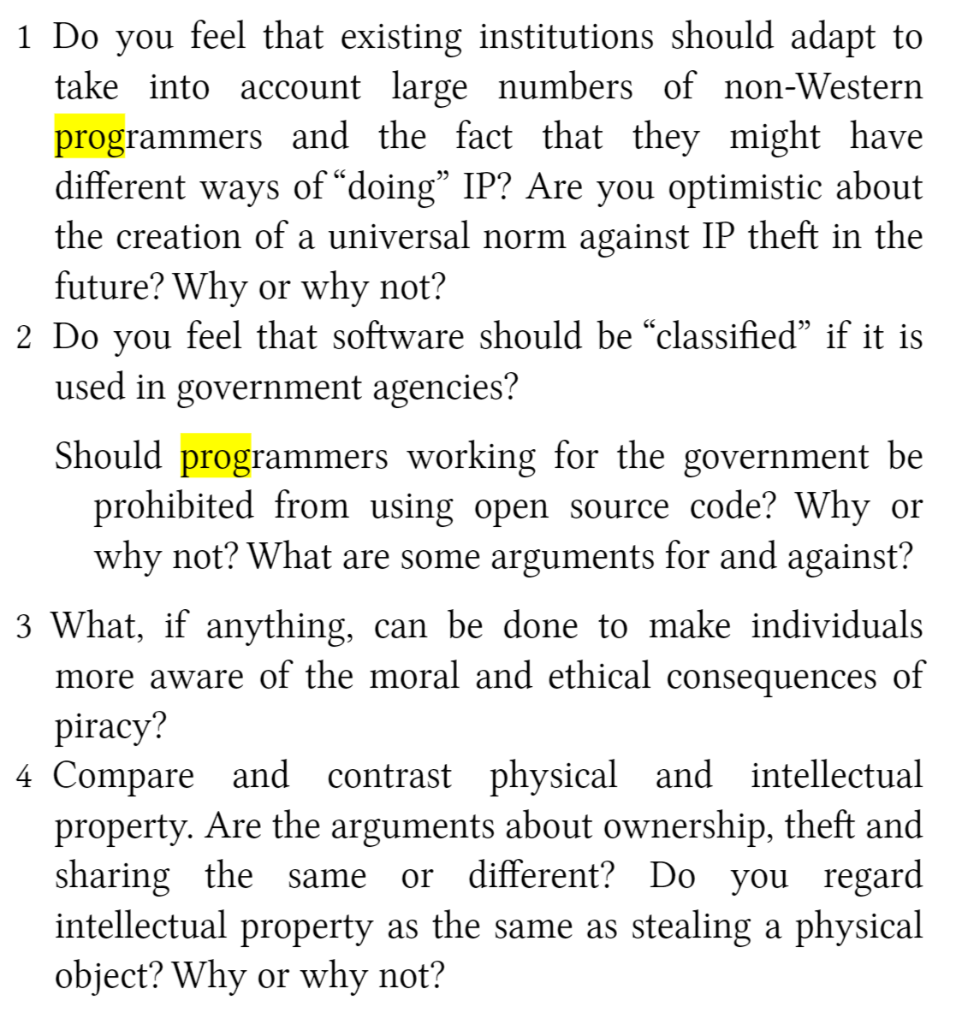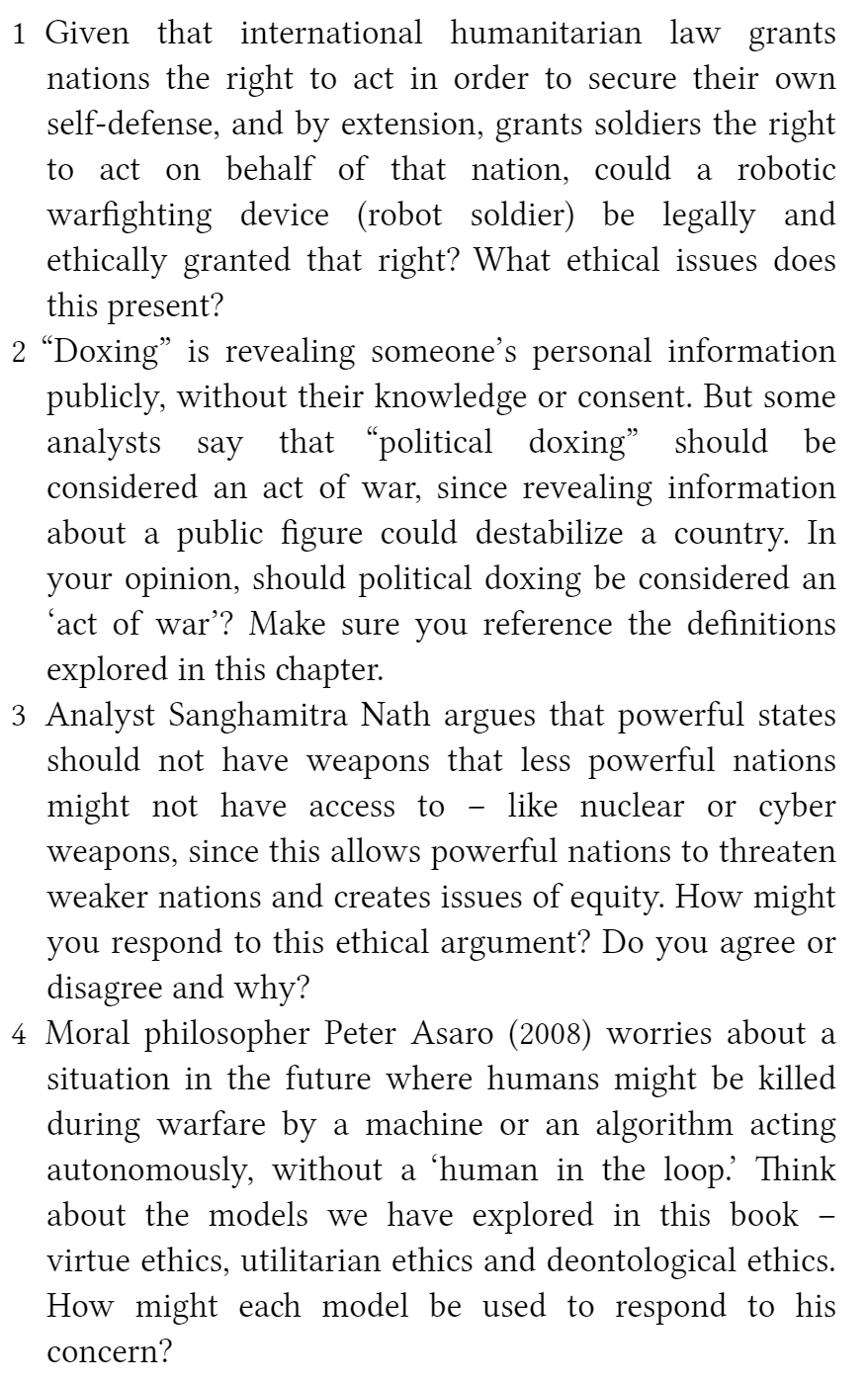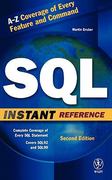Answered step by step
Verified Expert Solution
Question
1 Approved Answer
plz help me answer this discussion question from computer ethics I am taking computer ethics class and I need to answer these questions which I
plz help me answer this discussion question from computer ethics


I am taking computer ethics class and I need to answer these questions which I don't understand or don't know how to answer so I want someone to answer them if can
what more information do you need cause I don't know what else to provide you
1 Do you feel that existing institutions should adapt to take into account large numbers of non-Western programmers and the fact that they might have different ways of doing IP? Are you optimistic about the creation of a universal norm against IP theft in the future? Why or why not? 2 Do you feel that software should be classified if it is used in government agencies? Should programmers working for the government be prohibited from using open source code? Why or why not? What are some arguments for and against? 3 What, if anything, can be done to make individuals more aware of the moral and ethical consequences of piracy? 4 Compare and contrast physical and intellectual property. Are the arguments about ownership, theft and sharing the same or different? Do you regard intellectual property as the same as stealing a physical object? Why or why not? 1 Given that international humanitarian law grants nations the right to act in order to secure their own self-defense, and by extension, grants soldiers the right to act on behalf of that nation, could a robotic warfighting device (robot soldier) be legally and ethically granted that right? What ethical issues does this present? 2 Doxing is revealing someone's personal information publicly, without their knowledge or consent. But some analysts say that political doxing" should be considered an act of war, since revealing information about a public figure could destabilize a country. In your opinion, should political doxing be considered an act of war'? Make sure you reference the definitions explored in this chapter. 3 Analyst Sanghamitra Nath argues that powerful states should not have weapons that less powerful nations might not have access to - like nuclear or cyber weapons, since this allows powerful nations to threaten weaker nations and creates issues of equity. How might you respond to this ethical argument? Do you agree or disagree and why? 4 Moral philosopher Peter Asaro (2008) worries about a situation in the future where humans might be killed during warfare by a machine or an algorithm acting autonomously, without a human in the loop.' Think about the models we have explored in this book - virtue ethics, utilitarian ethics and deontological ethics. How might each model be used to respond to his concern? 1 Do you feel that existing institutions should adapt to take into account large numbers of non-Western programmers and the fact that they might have different ways of doing IP? Are you optimistic about the creation of a universal norm against IP theft in the future? Why or why not? 2 Do you feel that software should be classified if it is used in government agencies? Should programmers working for the government be prohibited from using open source code? Why or why not? What are some arguments for and against? 3 What, if anything, can be done to make individuals more aware of the moral and ethical consequences of piracy? 4 Compare and contrast physical and intellectual property. Are the arguments about ownership, theft and sharing the same or different? Do you regard intellectual property as the same as stealing a physical object? Why or why not? 1 Given that international humanitarian law grants nations the right to act in order to secure their own self-defense, and by extension, grants soldiers the right to act on behalf of that nation, could a robotic warfighting device (robot soldier) be legally and ethically granted that right? What ethical issues does this present? 2 Doxing is revealing someone's personal information publicly, without their knowledge or consent. But some analysts say that political doxing" should be considered an act of war, since revealing information about a public figure could destabilize a country. In your opinion, should political doxing be considered an act of war'? Make sure you reference the definitions explored in this chapter. 3 Analyst Sanghamitra Nath argues that powerful states should not have weapons that less powerful nations might not have access to - like nuclear or cyber weapons, since this allows powerful nations to threaten weaker nations and creates issues of equity. How might you respond to this ethical argument? Do you agree or disagree and why? 4 Moral philosopher Peter Asaro (2008) worries about a situation in the future where humans might be killed during warfare by a machine or an algorithm acting autonomously, without a human in the loop.' Think about the models we have explored in this book - virtue ethics, utilitarian ethics and deontological ethics. How might each model be used to respond to his concernStep by Step Solution
There are 3 Steps involved in it
Step: 1

Get Instant Access to Expert-Tailored Solutions
See step-by-step solutions with expert insights and AI powered tools for academic success
Step: 2

Step: 3

Ace Your Homework with AI
Get the answers you need in no time with our AI-driven, step-by-step assistance
Get Started


